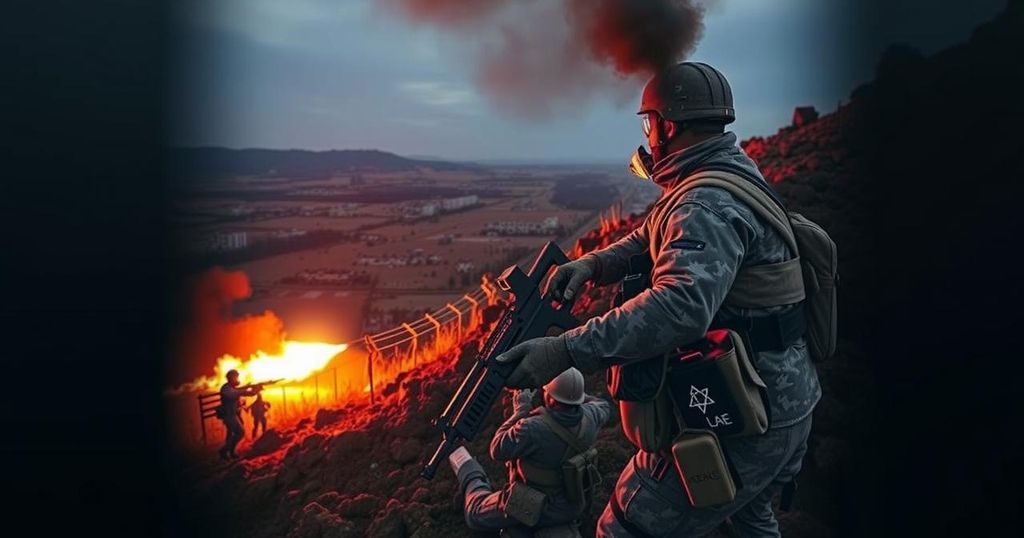Hezbollah launched its first strike since the recent ceasefire, targeting a disputed border area held by Israel. This attack follows accusations of over 50 ceasefire violations by Israel. In response, Israel conducted multiple airstrikes in Lebanon. The ongoing conflict in Gaza remains severe, impacting casualties and displacement. Both Hezbollah and Israel are maintaining a militarized stance, complicating efforts for a lasting peace.
On December 2, 2024, Hezbollah escalated tensions by attacking a disputed border zone held by Israel, marking the first strike since the recent ceasefire took effect. The attack followed accusations from Lebanon about over 50 violations of the ceasefire agreement by Israel. The assaults initiated by Hezbollah were presented as a defensive response, citing repeated Israeli actions that compromised the ceasefire. Meanwhile, Israel conducted several drone strikes in Lebanon, asserting these were necessary to counter ongoing violations by Hezbollah.
The volatile situation is exacerbated by the ongoing conflict in Gaza, where Israeli retaliatory actions have resulted in significant Palestinian casualties. As the ceasefire brokered by the U.S. and France struggles to maintain stability, both sides remain on high alert. The humanitarian cost in Gaza has been devastating, displacing approximately 90% of the population since fighting escalated.
Furthermore, the conflict has seen a concerning shift, as reports emerge of Iranian-backed militias actively engaging to support the Syrian government against insurgents. The U.S. Navy’s intervention in the Gulf of Aden illustrates an increase in regional security threats, with recent attacks coordinated by Houthi rebels targeting American vessels.
As tensions between these parties continue to mount, analysis of the ceasefire’s durability becomes paramount, as both Hezbollah and Israel exhibit readiness to engage militarily.
The implications of these conflicts are extensive, impacting regional stability and international diplomatic efforts aimed at peacekeeping.
In summary, the situation remains fluid with multiple actors involved, necessitating close monitoring to anticipate further developments that might impact the broader Middle East.
While humanitarian concerns are heightened, military responses from both Hezbollah and Israel are indicative of a deteriorating ceasefire, further complicating the situation in the region.
Continued efforts by international mediators will be crucial in striving for a lasting resolution to the ongoing strife.
The article provides an overview of the escalating conflict involving Hezbollah and Israel following a fragile ceasefire mediated by the United States and France. The ceasefire, which aimed to halt a prolonged exchange of fire, was quickly tested by renewed hostilities. Hezbollah’s recent missile strike into Israeli-held territory demonstrates an immediate breach of this agreement. This development is contextualized by the ongoing humanitarian crisis in Gaza, highlighting the broader implications of military engagements in the region, including the involvement of Iranian-backed militias and the U.S. Navy’s role in addressing threats posed by Houthi attacks.
The recent attacks by Hezbollah and subsequent Israeli airstrikes illustrate a concerning disregard for the ceasefire intended to stabilize the region. With Lebanon accusing Israel of multiple violations, and Israel affirming its right to defend against perceived threats, the potential for further conflict remains high. The humanitarian crisis in Gaza continues to be dire, with widespread displacement and casualties. As military engagements persist across various fronts, the immediate need for diplomatic intervention is evident to prevent escalation.
Original Source: apnews.com






